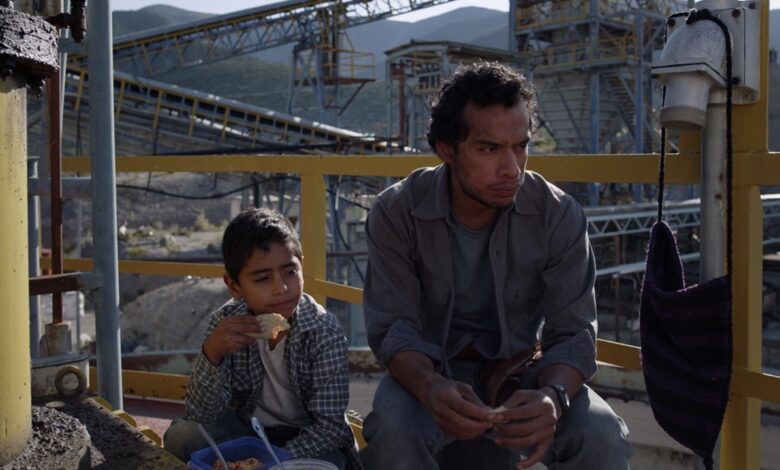Review Station Fourteen – Review on FilmTotaal


Director: Diana Cardozo | Script: Diana Cardozo | Cast: Gael Vazquez (Luis), Jose Antonio Becerril (Manuel), Yoshira Escarrega (Gaby), Lourdes Elizarras (Lupita), Margaret Hernandez (Margaret), ea | Time to play: 87 minutes | Year: 2021
Shedding light on social tensions remains intriguing for many filmmakers. There are countless angles to view the complex circumstances within a population group. With that in mind, former journalist and award-winning filmmaker Diana Cardozo ventures into a stark portrait of a remote town in Mexico. She does not portray the situation of poverty from a neutral and distant point of view, but through the eyes of a small child.
In the remote town of Estación Catorce, San Luis Potosí, Mexico, seven-year-old Luis and his family regularly have to hide from a column of black cars belonging to a drug cartel. The cartel loots the homes of residents, leaving behind dead victims. When criminals attack the neighbor’s house one day, Luis’s father, Manuel, tries to get a part of the robbery. As soon as the criminals have left, he takes his son with him to steal a sofa from the murdered townspeople. To sell the sofa, the two drag the furniture to a distant town.
The way the everyday life of the seven-year-old boy is depicted is reminiscent of a documentary. There is a lot of emphasis on the daily life of the people. The shots usually last a little longer and highlight the ordinary activities of the inhabitants. With little to no background music, the seven-year-old’s life emerges in detail. Much of the screen time is devoted to his experiences in town. More attention is paid to the atmosphere of village life than to the plot structure.
Perspective plays an interesting role in storytelling. Not only do most of the scenes revolve around the events surrounding little Luis, but the camera angle also changes his field of view. This makes his subjective experience a big part of how situations are presented to the viewer. This point of view manages to intimately convey the influence of the miserable living conditions of Mexico on a small child. This gives more impact to the scenes.
station fourteen It oscillates between a crude and realistic representation and the subjective portrayal of Luis’s life. Although Manuel’s complex struggle between morality and family support can be seen in the eyes of his son, all the information necessary to monitor this state is clearly visible. This allows the viewer to control the situation, unlike the main character. Therefore, the way of counting is still too objective to experience the child’s confusion. It stimulates thoughts about parenting in a difficult life situation, but lacks deep understanding.